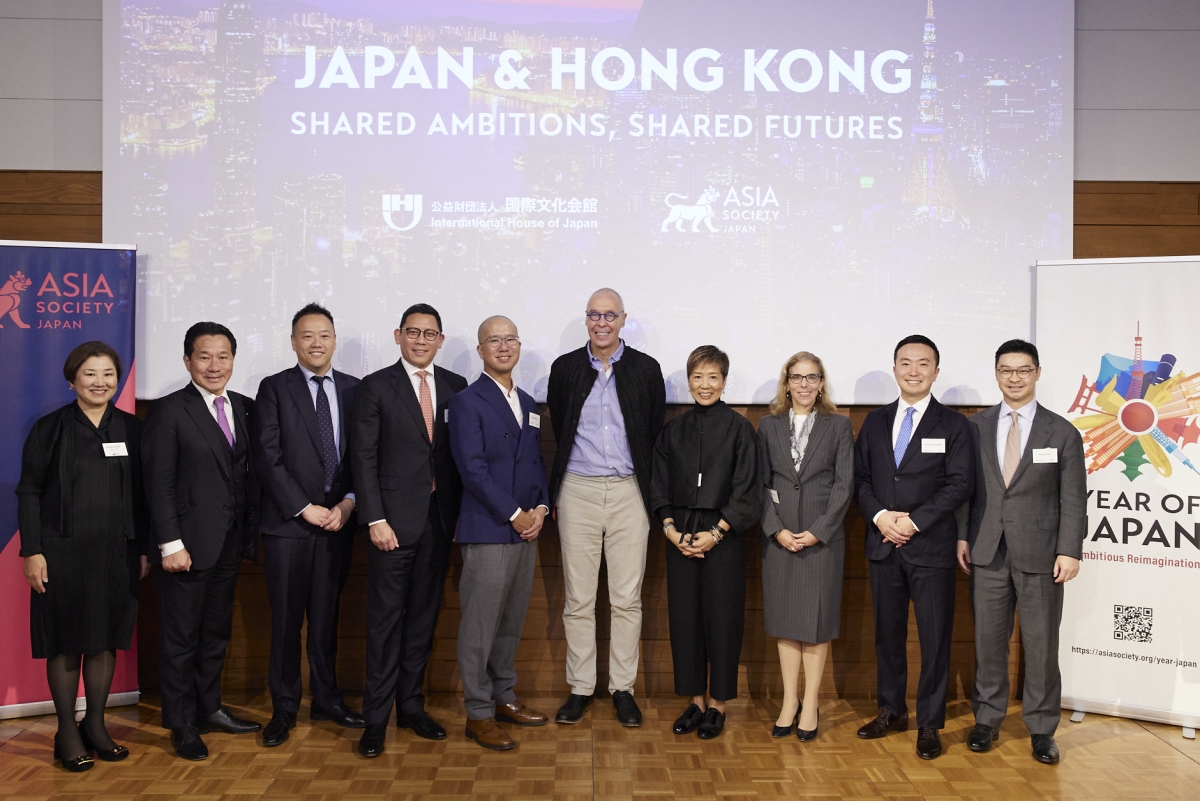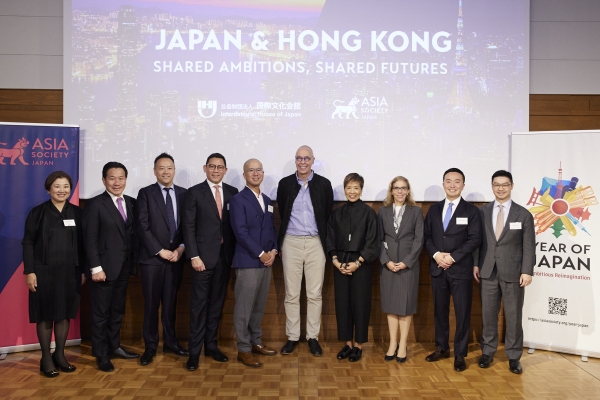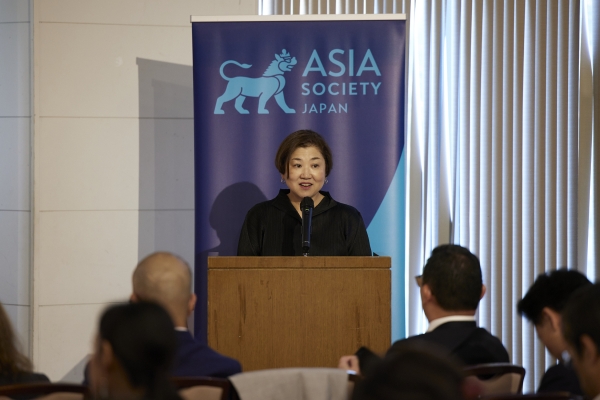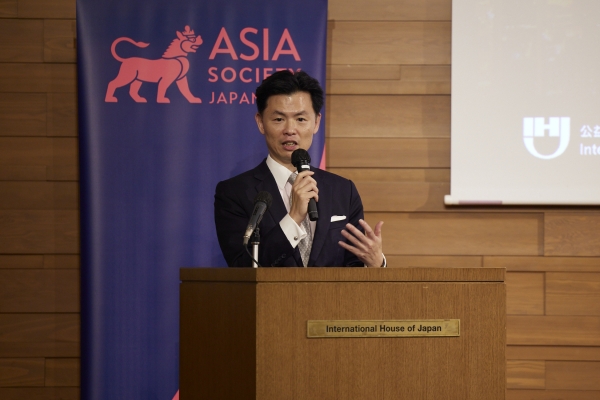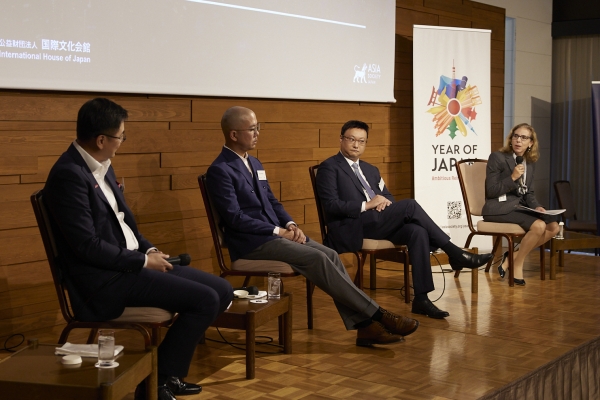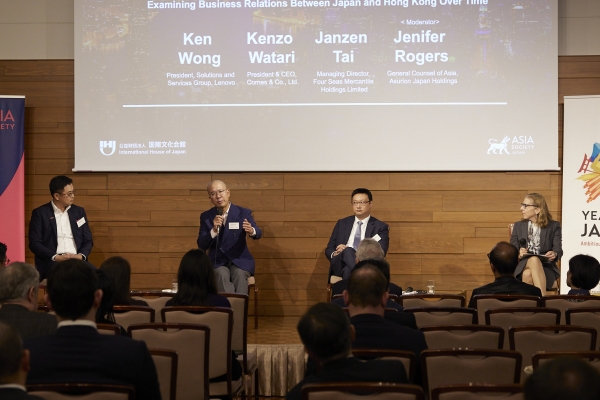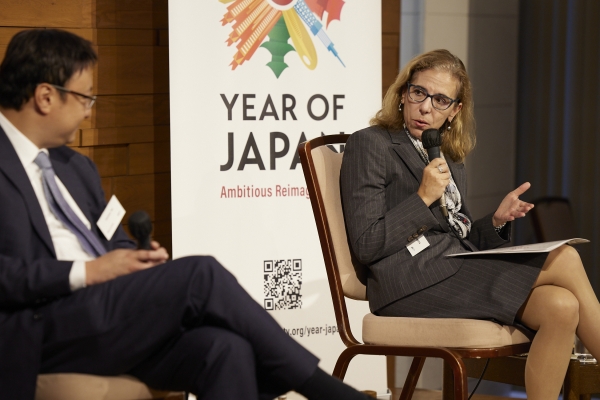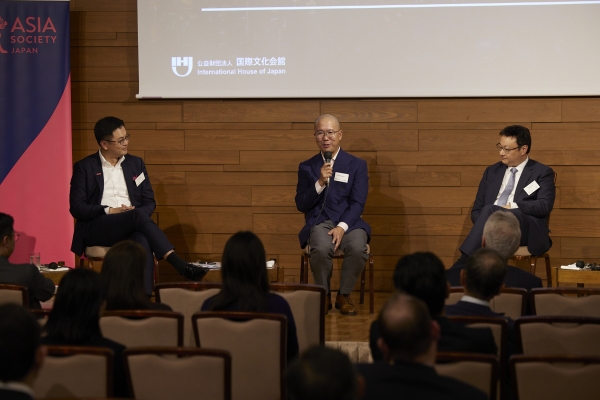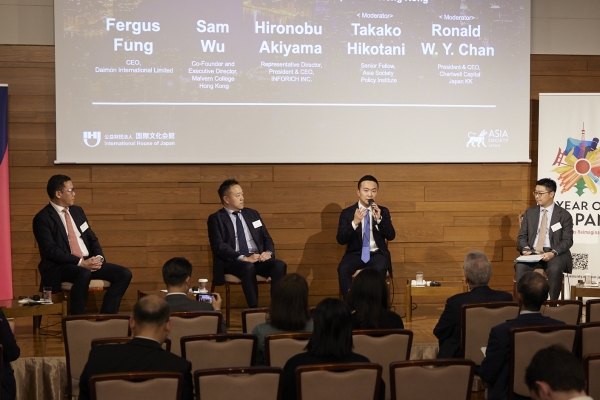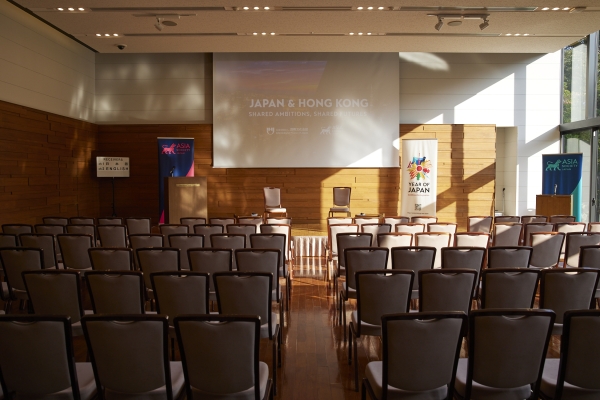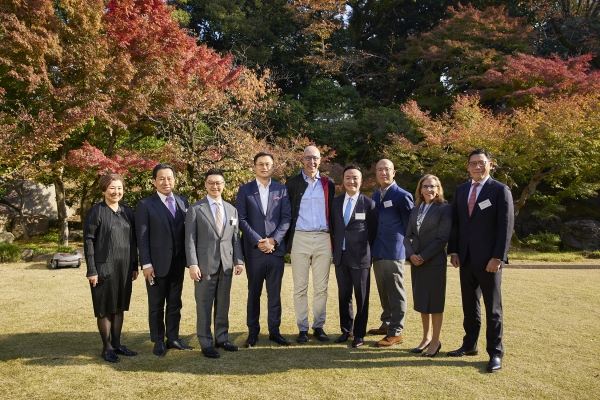Japan & Hong Kong: Shared Ambitions, Shared Futures (Recap)
Keynote
Unveiling Harmonious Bonds: Strengthening the Japan-Hong Kong Partnership for a Prosperous Future
Dr. Adrian Cheng, CEO of New World Development
Economic synergies between Hong Kong and Japan
The economic synergies between Hong Kong and Japan are undeniable. The exchange of goods and services has reached unprecedented levels, fostering economic growth on both sides.
The two regions also bring forth numerous opportunities for entrepreneurs. Japan possesses a thriving innovation ecosystem supported by cutting-edge technologies, world-class research institutions, and robust infrastructure. Thanks to government support, we are witnessing a surge in the number of young entrepreneurs who possess the potential to expand their businesses rapidly and globally like their counterparts in the U.S., China, and India. Hong Kong, strategically positioned with its financial expertise and entrepreneurial spirit, can serve Japan’s young entrepreneurs as the gateway to other markets.
A hub for family offices
Hong Kong aims to be a leading global hub for family offices, offering training, facilitating knowledge exchange, and providing networking opportunities to support industry practitioners and the next generation of wealth owners. Generation Z, with their unique upbringing, is now entering family businesses. Hong Kong invites Japanese families that have successfully passed on family heritage and wealth through generations to collaborate in preserving their wealth for future generations.
After his keynote, Dr. Cheng engaged in a fireside chat with Mr. Jesper Koll, Founding Member of Asia Society Japan Center (ASJC) followed by a conversation with the floor, which emphasized a shared focus on regional dynamics.
Advice to young entrepreneurs in Japan and Hong Kong
Japan has opened up and rules have become more relaxed during the past decade; therefore, the current generation appears to have more opportunities to start up their ventures and disrupt the market. Young Japanese have become more entrepreneurial, and given increasing competition, more resource-hunting is called for.
Young Hongkongers have become ever-creative. Anyone who has an entrepreneurial spirit in Hong Kong should look into the Greater Bay Area (GBA), which is an 86 million people market, and then also expand into Asia.

A springboard to the Greater Bay Area
A good form of cooperation between Japan and Hong Kong is using Hong Kong as a springboard to the GBA, China’s growth engine accounting for 5% of its population and 13% of its GDP. Hong Kong can be used to expand family offices as many family-friendly policies have recently been promoted. Hong Kong also offers a regulated license-based market for virtual assets, including securitized tokens and cryptoassets.
Japan in turn can offer opportunities in sectors such as tourism, including luxury hotels and restaurants, real estate, and advanced technologies. Even with a declining population and thus a lower footprint, it will continue to attract foreign money. The market has become more open but needs more energy. Therefore, the young generation should strive to create more value through venture and entrepreneurship.
Strategic geopolitical realities: China cannot be missed
While there are many uncertainties regarding the geopolitics of the region, we cannot miss China, the world’s second-largest economy. Electric vehicles (EVs), battery energy storage systems (BESS), and renewables, which are being promoted by the Chinese government, could be promising investment destinations. Yet, China still needs to be analyzed in depth to understand which segments or gaps to tap into. New World Development has been outstandingly successful in the Chinese market because it focuses on the upper high-end market which has a tremendous amount of money to spend on high-quality products.
Japan and Hong Kong share a proud history of engagement and communication, reconnecting, and creating a shared future. Hopefully, this symposium will be a catalyst to encourage the next generation to foster harmonious bonds for a shared prosperity and future.
Panel Discussion 1
Decades of Partnership: Examining Business Relations Between Japan and Hong Kong Over Time
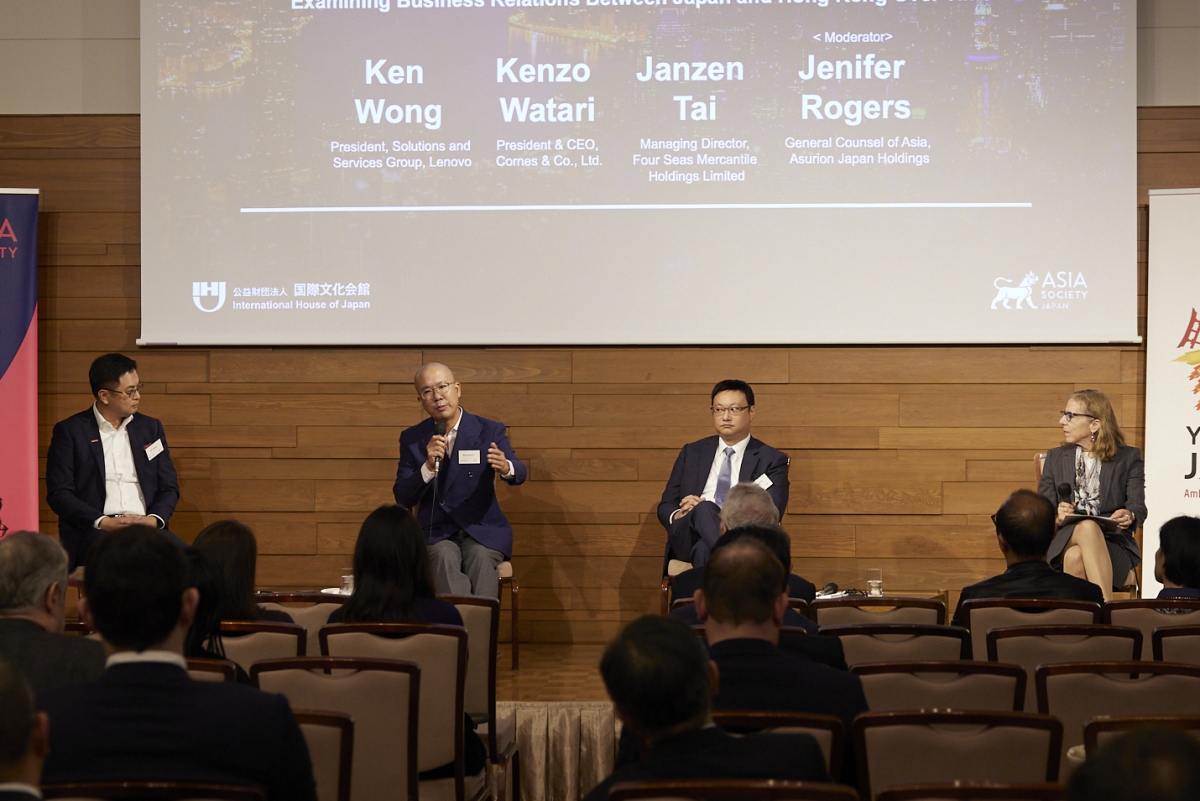
Panelists
- Ken Wong, President, Solutions and Services Group, Lenovo
- Kenzo Watari, President & CEO, Cornes & Co., Ltd.
- Janzen Tai, Managing Director, Four Seas Mercantile Holdings Limited
Moderator
Jenifer Rogers, Founding Member of ASJC / General Counsel of Asia, Asurion Japan Holdings
Ms. Rogers initiated the discussion with introductions from each panelist on their backgrounds with reference to their association with Hong Kong–Japan relations. Mr. Wong studied in Japan as a teenager. He led the joint venture between Lenovo and NEC in 2011 and later with Fujitsu in 2017. Seventy-five percent of Lenovo’s revenue comes from outside Mainland China, with the largest share from Japan. Mr. Watari comes from a family of both Japanese and Hong Konger descent. He leads Cornes, which was founded by an Englishman in 1861, initially trading in the tea and silk trade between Hong Kong and Japan. Cornes was also a pioneer in selling insurance in Japan. Mr. Tai’s father founded the Four Seas group, which was the first company to bring Japanese confectionery products, such as those manufactured by Glico and Calbee, to China and Hong Kong in the 1970s. Their business has expanded from being the sole agent for the brands to having joint ventures with them. Mr. Tai also leads Miyata, which ranks among the top ten confectionery wholesalers in Japan. The synergy between the Fours Seas group and Miyata has allowed the introduction of smaller manufacturer products to Hong Kong and Chinese markets.
AI, a game-changer in aging economies
AI has empowered us to be more independent in what we do and has altered our day-to-day work. Mr. Wong currently uses Chat GPT to generate 30-40% of his speeches and GPT-Autopilot for 30-40% of his PowerPoint slides, where he used to have a ten-person team for external communications. This increases productivity by 30-40%. Technology is no longer a cost for many companies. The more challenging the situation they face, the more help they need from technology to gain a competitive edge. AI can be a game-changer in aging societies like Hong Kong and Japan, which are both quite open to these technologies.
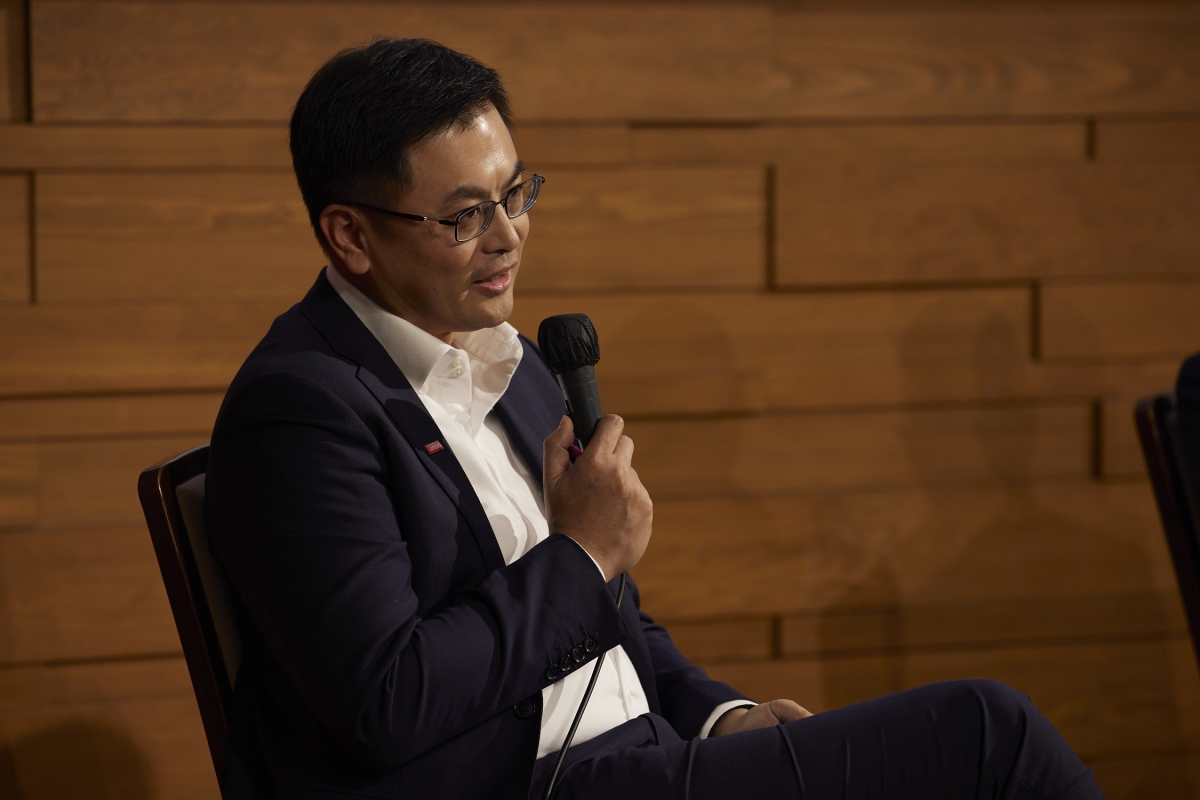
Sharing Japan’s luxuries
Cornes sold more luxury cars than ever during the COVID pandemic. The cost of ownership of luxury cars is relevantly low because their resale value is high, compared to high-end models of non-luxury cars which will devalue quite aggressively. Mr. Watari has established the world’s only luxury driving club in Magarigawa. Japan is blessed with natural resources that allow the construction of a luxury circuit in the mountains not so far from international airports with no noise issues. Japan offers better roads, food, and car servicing, which often goes unnoticed.
A new door for regionalizing food imports
Despite the challenges of import bans due to the nuclear wastewater release in Fukushima, Mr. Tai has not experienced critical difficulties thanks to the efforts of both governments. Hongkongers love Japanese food culture and trust the food safety of Japanese products. That said, Mr. Tai has observed a need to diversify the product categories carried by his company, not only looking at mainstream food products sourced from Tokyo but also products from different areas of Japan. He has just recently signed an MOU with the Hokkaido prefectural government for the promotion of importing products from Hokkaido to Hong Kong.
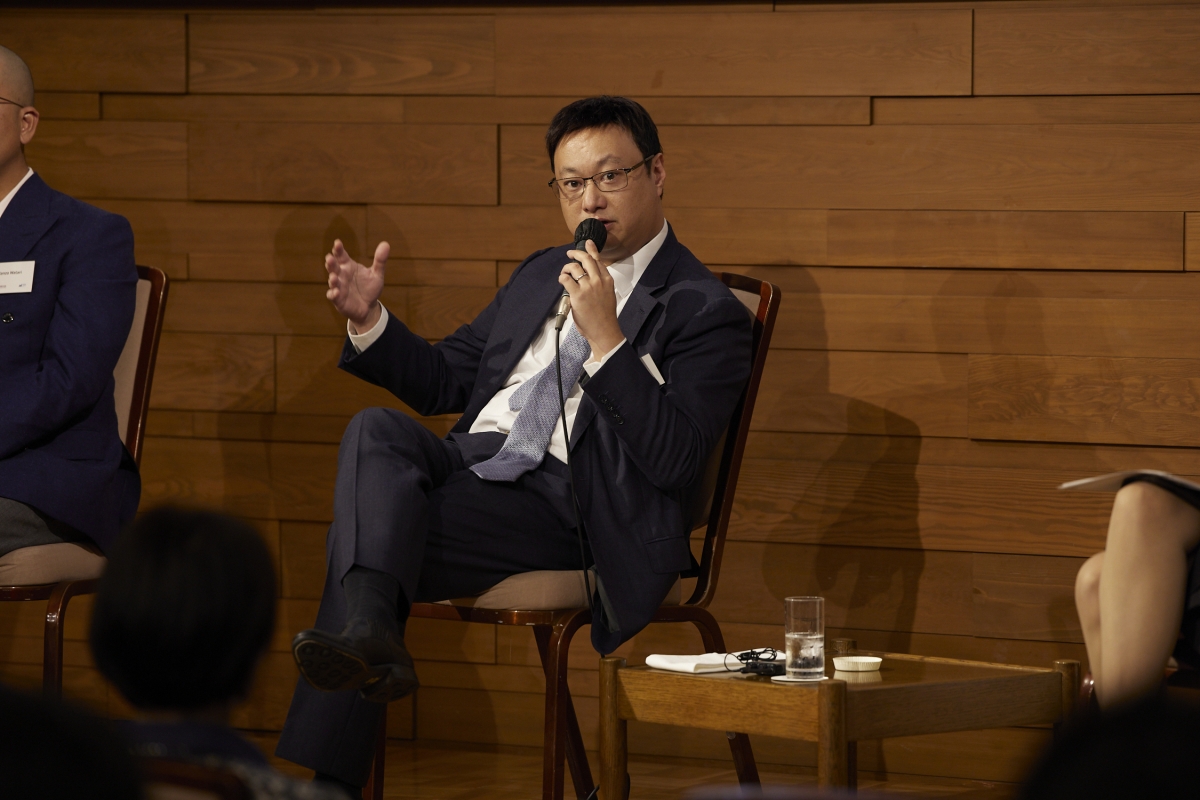
Opportunities and challenges
Mr. Wong reinstated that the GBA, home to a population equivalent to 70% the size of Japan’s and a GDP amounting to 20% of that of Japan, offers great business opportunities that Hong Kong can play a key role in letting Japanese investment grasp. The GBA is also the richest part of China promising tremendous growth. Some opportunities lie in robotics for the elderly and caregiving services in an aging society and localized AI models. Another important area of collaboration could be smart manufacturing. Lenovo has built the first government-certified net-zero factory in China.
Even the chip war can generate opportunity. Lenovo has a diversified global supply chain that makes sure the company is in full compliance with local rules and regulations. A business needs the resilience and agility to navigate different challenges. With every market asking for a dedicated data center to host the public cloud and people in need of help in dealing with the increasing complexity of systems and the different requirements in different contexts, the global IT services market continues to grow at a relatively fast pace.
Role of Hong Kong in finding solutions
Mr. Watari mentioned that controls from the U.S. are difficult to work around and can sometimes be nonsensical from a business perspective. However, Hong Kong has always been good at working around such challenges and is a great place to come together to solve problems when certain parties try to divide the world.
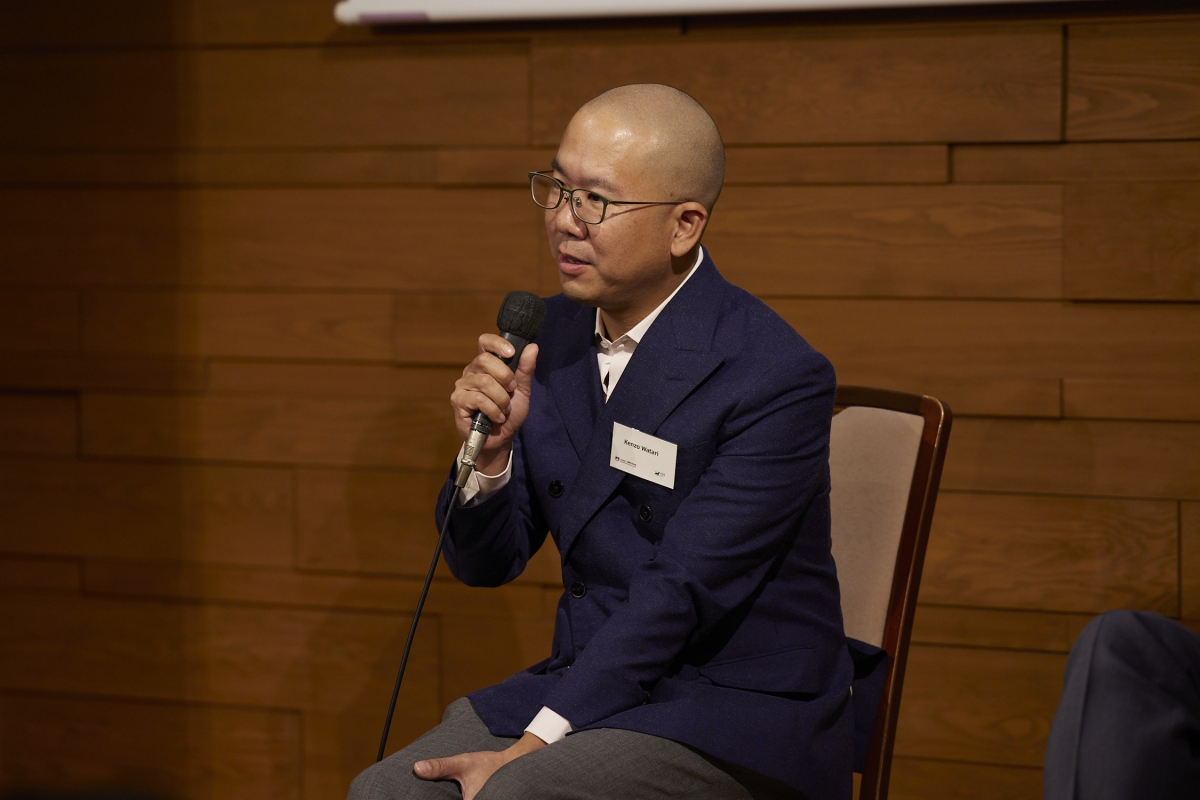
Mr. Tai also highlighted that the GBA is key to developing closer ties among Japan, China, and Hong Kong. Many investors start with Hong Kong and see how they can go into the Greater Bay Area. He is shifting his business from an import-oriented model to increasing exports from Hong Kong to Japan. This includes opening a Chinese restaurant in Tokyo and bringing chestnuts through Miyata to Japanese retail chains.
The panel concluded with a conversation with the floor which covered how Hong Kong and its internationality have evolved, what motivates Hong Kongers to come to Japan, what synergies are supported by the shared history, culture, and food between Japan and Hong Kong, and how hidden talent should be harnessed to solve workforce issues in Japan.
Panel Discussion 2
Entrepreneurship and Innovation: Fostering Collaboration Between Japan and Hong Kong
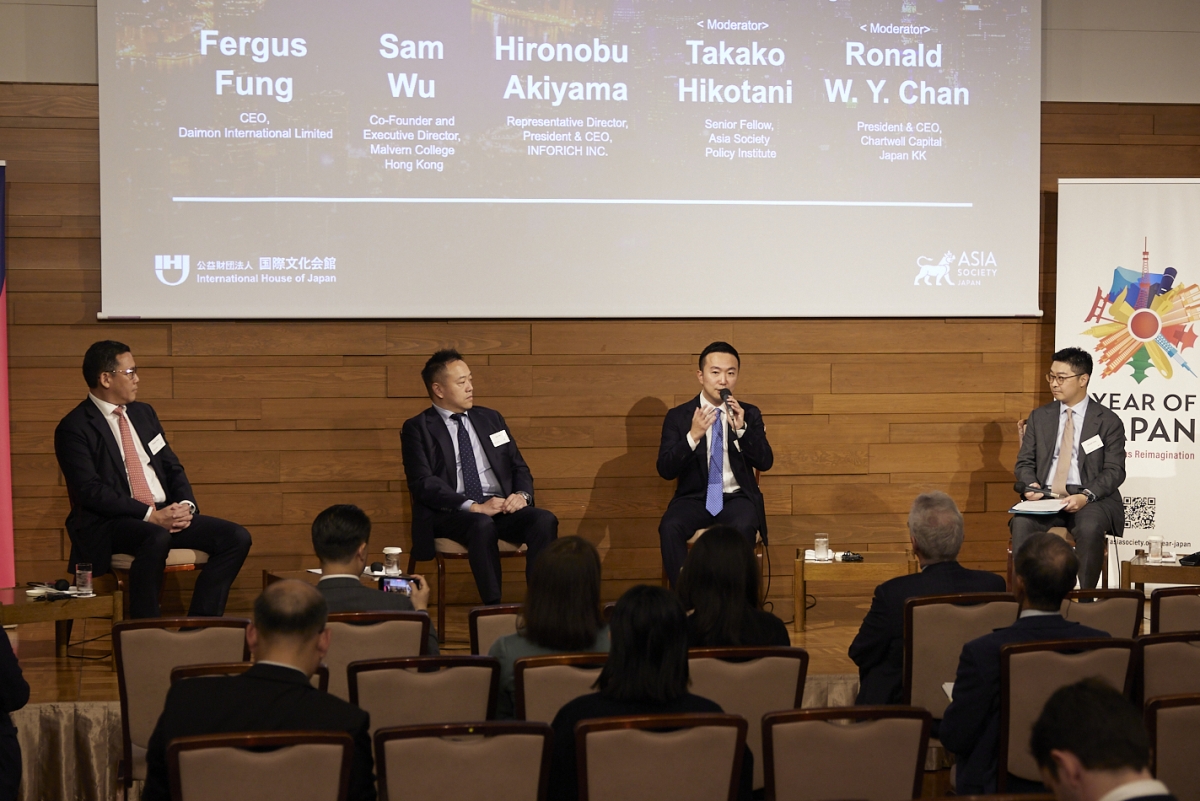
Panelists
- Fergus Fung, CEO, Daimon International Limited
- Sam Wu, Co-Founder and Executive Director, Malvern College Hong Kong
- Hironobu Akiyama, Representative Director, President & CEO, INFORICH INC.
Moderator
Ronald Chan, Founding Member of ASJC, Chief Investment Officer of Chartwell Capital Limited
Mr. Chan initiated the discussion with introductions from the panelists on their ties with Japan. Mr. Fung majored in Japan Studies at university and worked in Japan for three years in his early career. Mr. Wu’s connection with Japan is rooted in his family’s business, which had strong connections with the financial sector in Japan. He is currently Executive Director for Malvern College which has just opened a school in Kodaira, Tokyo. Mr. Akiyama has a Japanese mother and has spent twenty years, or half of his life in Japan. He was initially a rapper performing in Cantonese, Japanese, and English under the Universal Music Japan label. Experiences from his entertainment career have helped his understanding of local brand awareness. This has led to the successful launch of the smartphone charger-sharing service “ChargeSPOT” in Japan.
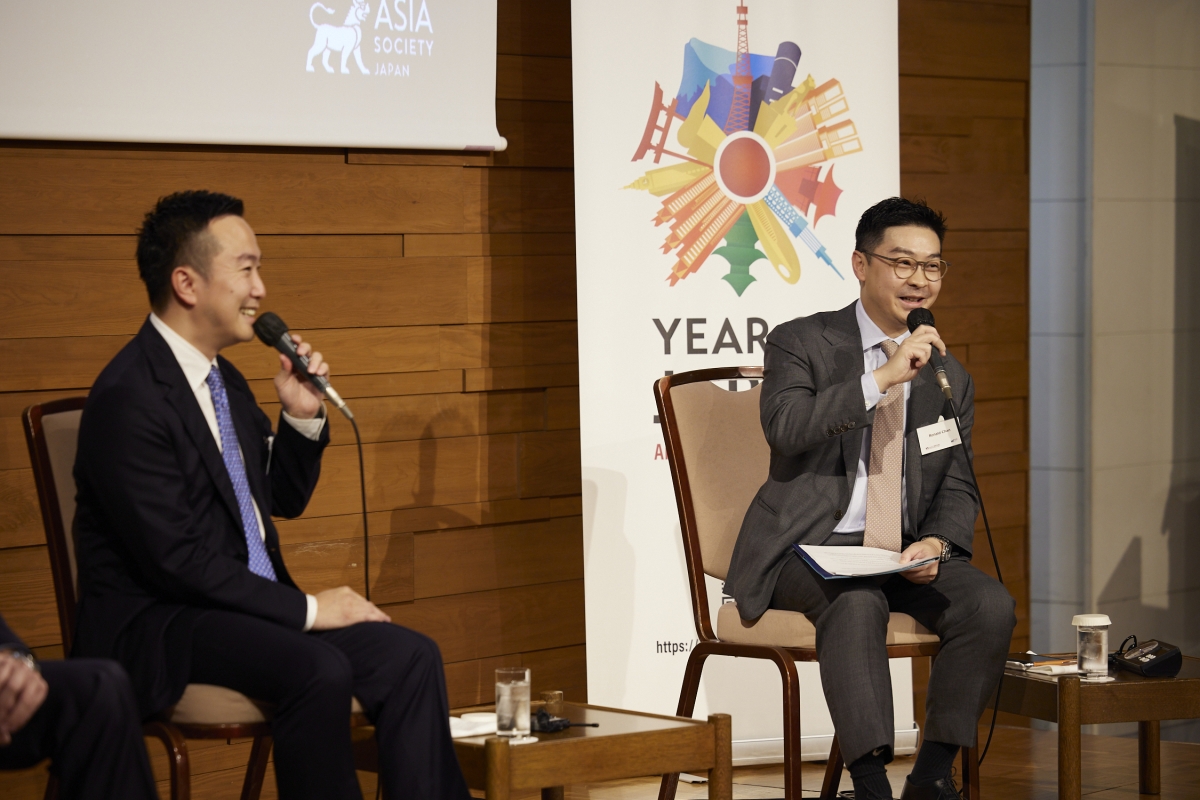
New opportunities emerging from the pandemic
Mr. Wu opened Malvern College Tokyo in September 2023. It had been in the planning stage until the COVID-19 pandemic during which opportunities popped up, including access to a piece of spacious land that had previously been home to the campus of a design school. The common behavior among parents in Hong Kong and Japan is that they want the best for their children and try to push them academically. As Japan has become more receptive to international ideas, there is momentum to build new international schools. Mr. Wu sees the school as a work of collaboration among Singapore, Hong Kong, and Japan.
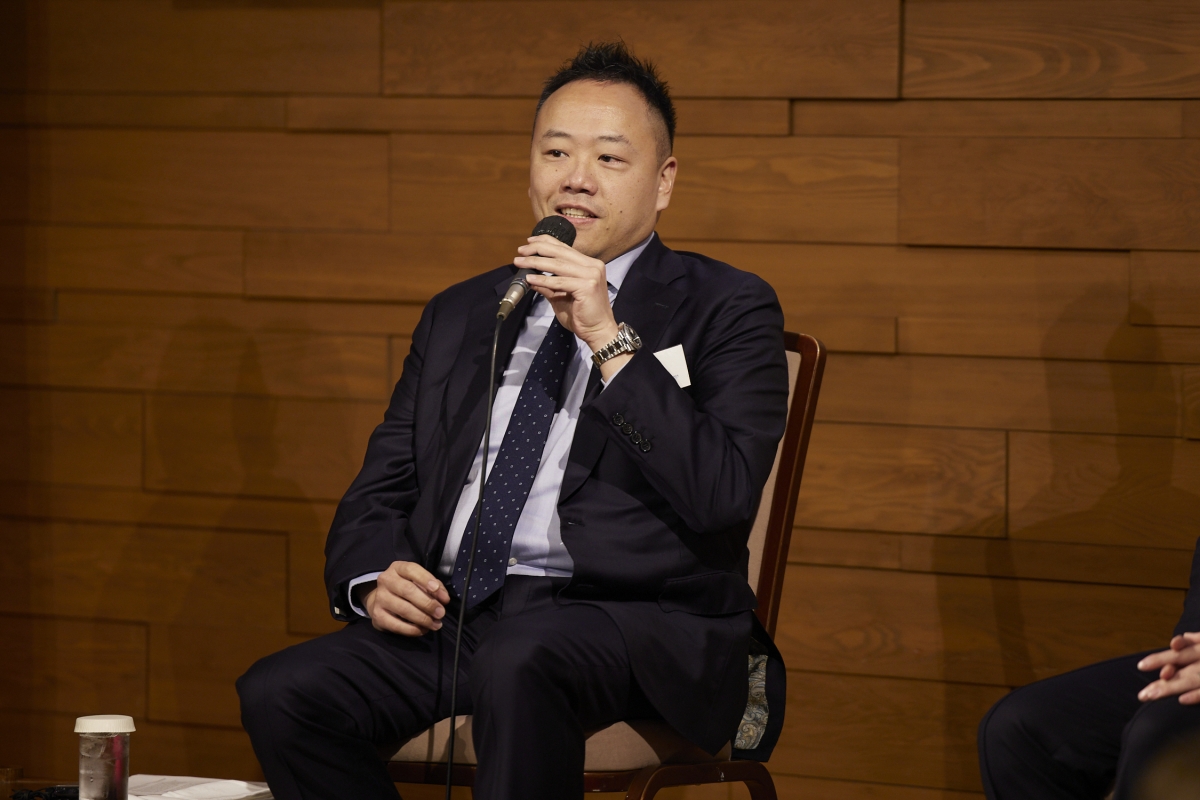
Mr. Fung imports sake, for which international interest has become phenomenal, while it has been a struggling sunset industry over the past 40 years in Japan where young people tend to drink less. The world’s top three sake importers are Mainland China, the U.S., and Hong Kong. China has leapfrogged as an importer during the past five years and the restaurant boom has helped boost demand. The pandemic has also contributed to increased drinking at home. In the U.K., where cocktails are more popular, Mr. Fung sells canned flavored sake to eventually shift people’s interest to drinking sake itself. He has also been exploring sake pairing with other cuisines.
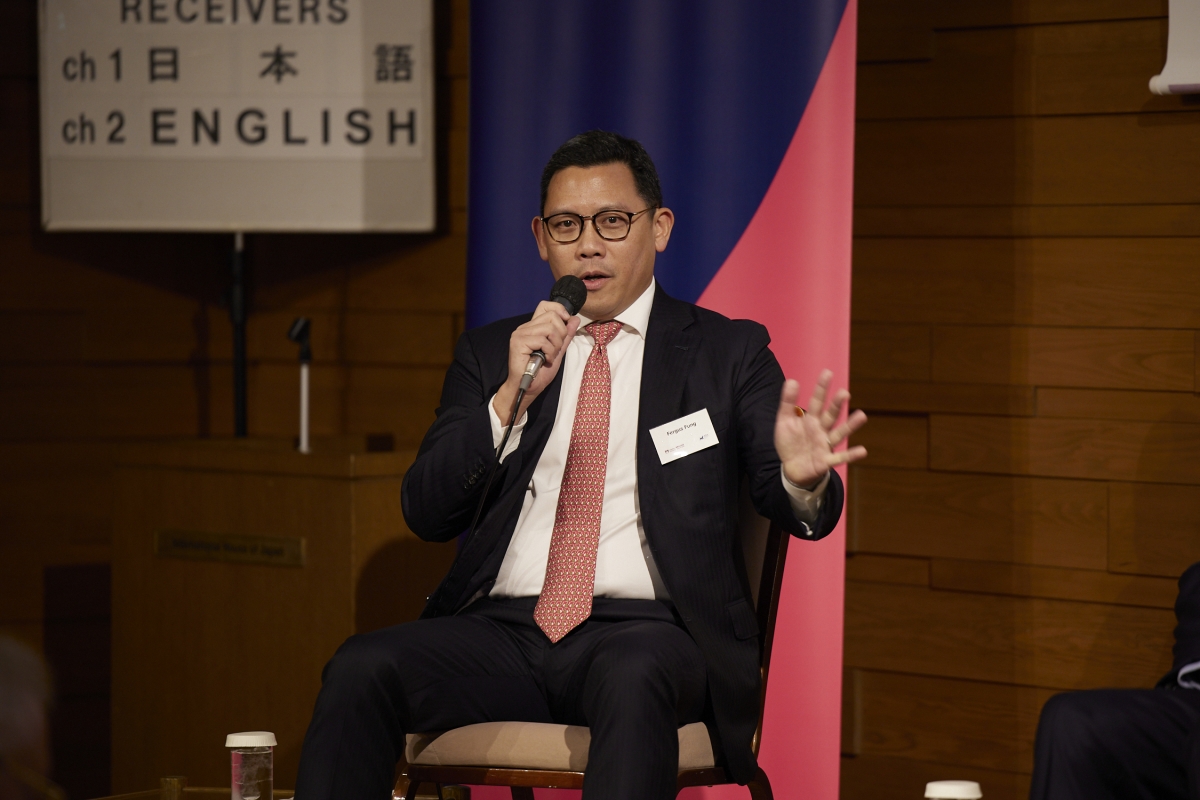
Differences in temporal pacing
Mr. Akiyama mentioned that speed was the essence of their success in bringing their charger-sharing business model to Japan. Speed matters in both Japan and Hong Kong, but in different contexts and sequences. Hongkongers pivot and improvise more, whereas the Japanese take a longer time to deliberate, but once the decision is made, the implementation is fast and stable in Japan. In the startup world, the Hong Kong speed has more value because one is required to experiment intensely while running.
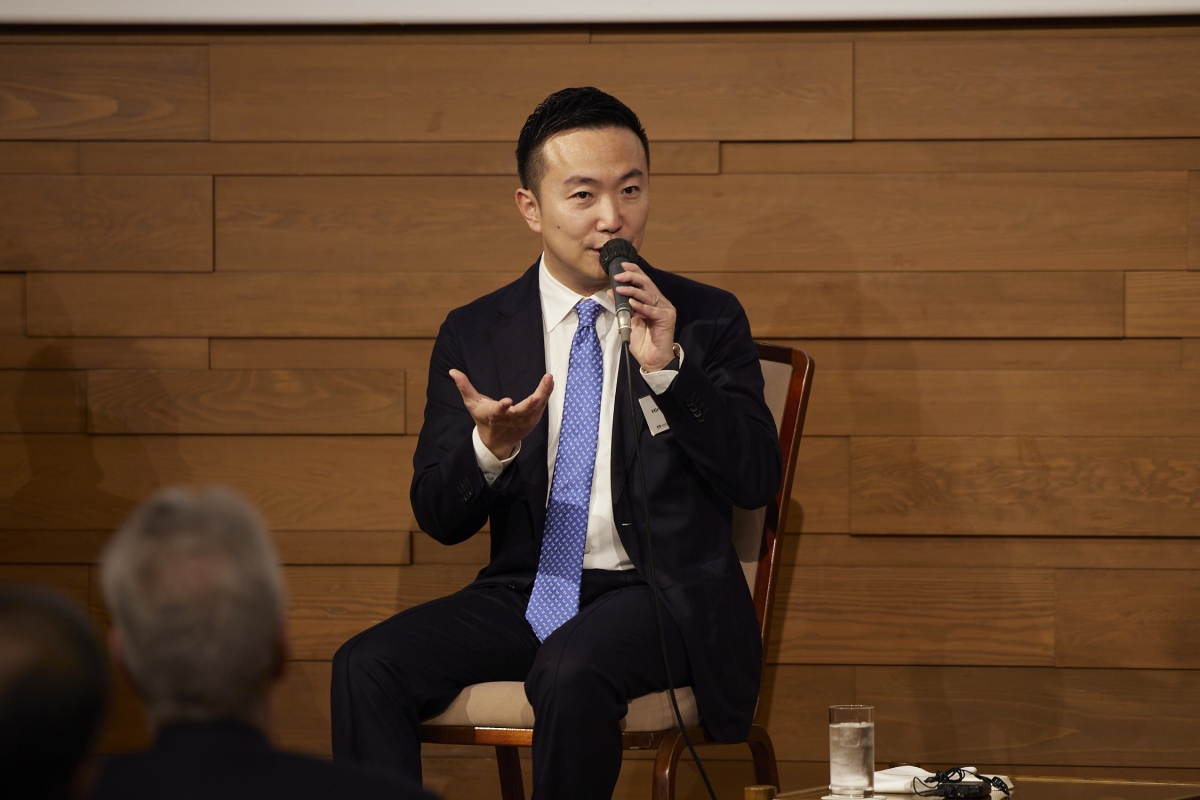
Running a British School in Asia, Mr. Wu integrates the host country's culture and language into the core curriculum so that children can be aware of their citizenship. The school communicates to parents that they do not intend to reinvent culture but to build on the local culture by adding a worldview to it. In this ever-changing world, respecting one’s own culture and traditional ways is key as our identity makes us unique.
Sometimes it can be challenging to communicate unconventional ideas to achieve the same goals. Mr. Wu has observed in his conversations with local authorities that multiple options are explored at the same time in Hong Kong while in Japan there is often no space for side options. Mr. Fung had initially found it challenging to convince a traditional sake brewer to accept disruptive ideas such as experimenting with added flavors but now enjoys a relationship of tossing ideas back and forth.
Towards the end of the discussion, Mr. Chan invited the floor to ask questions to the panelists. The discussion with the floor addressed the declining number of outbound students due to the affordability of studying abroad and giving children the opportunity to expose themselves to different cultures and languages, how geopolitics will shape the way business is navigated, innovatively changing traditional mindsets, acquiring not only top talent but the talent missing across other levels to support entire value chains, and seeking diversity in an organization.
